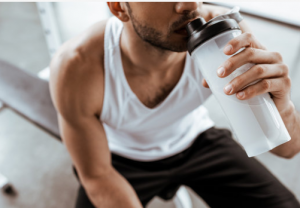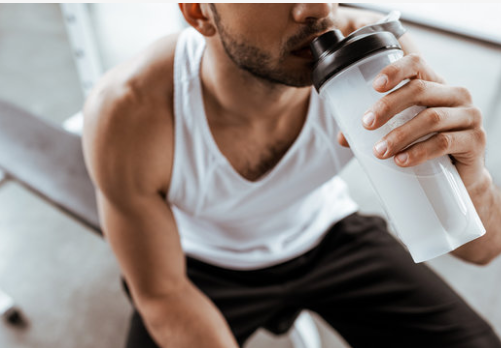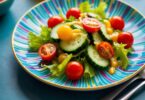Love sports, but scared about getting injured? Sports injuries are fairly common, and believe it or not, there is a strong connection between poor nutrition and sports-related injuries. Hence why proper food nutrition and preventive health measures should be taken.
When ligaments, tissues, and muscles become extensively damaged, it promotes inflammatory hormones that favor the destruction of your tissue and the resistance to form new tissue. These inflammatory responses may rely on total muscle mass, and they can be affected by nutrition. That is why the metabolic values, nutritional profile, and the body composition of a sportsman can affect muscle recovery when there is an injury.
The main goal from a nutritional point of view is to prevent injuries by eating a well-balanced diet. But unfortunately, sports accidents happen, let’s discuss the best nutrients to heal fast and optimize recovery time.
The 7 Essential Nutrients for Sports Injuries that Help to Heal Fast

Nutrients for Sports Injuries
1. Protein
Protein is a critical building block for plenty of tissues in the body, involving muscle. After an injury, your injured body part becomes immobilized. It usually causes a decline in strength or muscle mass.
However, receiving an adequate amount of protein can aid in minimizing this loss. Moreover, a protein-high diet may stop inflammation from obtaining too bad and minimizing your recovery. Furthermore, slightly increasing your protein intake once you start training the injured body part again helps you re-arrange any lost muscle.
Because of these problems, ensure clean protein-high foods such as white meat, fish, poultry, beans, nuts, or seeds in your diet. Aim for consuming 1.2g/per kilogram of bodyweight per day.
2. Omega-3 Fatty Acids
After damage, the initial phase of wound healing always includes some inflammation. This response is helpful and required for appropriate healing. But, if this inflammation remains uncontrollable, it may reduce your recovery.
One technique to minimize extensive inflammation from slowing down your recovery is to consume an adequate amount of omega-3 fats. These fats are available in foods like fresh fish, algae, walnut, flaxseed, and chia seed, are renowned for including anti-inflammatory features.
You can also stop extensive or prolonged inflammation by minimizing omega-6 fats typically present in corn, cottonseed, soy, or sunflower oils.
3. Vitamin C
Vitamin C aids your body in synthesizing collagen that aids in regulating the integrity of your bones, muscles, skin, and tendons.
So, receiving an adequate amount of vitamin C from your foods is an excellent technique to help your body rebuild tissue after damage. Furthermore, this vitamin has antioxidant or anti-inflammatory features that may help maximize your recovery by stopping extensive inflammation levels. Fortunately, vitamin C is one of the essential vitamins to obtain via your diet.
Foods rich in vitamin C are citrus fruits, red or yellow bell peppers, leafy veggies, kiwi, strawberries, tomato, mangoes, and papaya.
4. Dietary Fiber
Recovery from damage often includes minimum usage of the injured body part. To get rid of it from undesired body fat-it is significant to compensate by consuming slightly less. One technique to minimize your calorie consumption is to consume a diet high in dietary fiber.
Dietary fiber with eating protein-high foods will aid you to consume less without feeling hungry. That is due to the fact that fiber-high foods like fruits, vegetables, legumes, and whole grains aid in promoting feelings of fullness after meals.
Fiber-high foods tend to be high in many other nutrients significant for your recovery, involving vitamin C or zinc.
5. Zinc
Zinc is an element of plenty of enzymes and proteins, involving those required for wound healing, tissue repair, and development. In fact, research highlights that not receiving an adequate amount of zinc from your diet can slow down wound healing.
So, eating zinc-high foods like meat, fatty fish, shellfish, pulses, seeds, nuts, or unprocessed grains may aid you to recover more efficiently from an injury.
Some individuals may be interested to simply consume dietary zinc supplements to make sure they fulfill their suggestions. However, zinc fights with copper for absorption; therefore, getting high doses of zinc from supplements may enhance the chance of copper deficiency.
6. Vitamin D and Calcium
Calcium is a critical element of bones and teeth. It is also included in muscle contractions and nerve signaling. That is why it is incredibly significant to make sure you always receive an adequate amount of calcium.
Calcium-high foods involve dairy items, dark leafy vegetables, salmon, kale, walnuts, seaweed, and calcium-fortified foods.
7. Creatine
Creatine is a material naturally present in meat, chicken, and fish. It facilitates the body from energy during exercise or high-intensity workout. Your body can also form approximately one gram of it daily.
Creatine is a renowned supplement typically utilized to enhance muscle mass and promote performance in different sports.
Interestingly, it may also aid you in recovering from an injury. One study highlighted that creatine supplements increased the gain of muscle mass and strength lost during intense workouts.
Takeaway message
Many prestigious athletic trainers and coaches have witnessed faster recovery from sports injuries when a diet is optimized with adequate nutrients. If you are looking for a comprehensive all in one supplement, we recommend WoundVite, a high potency formula with 14 key vitamins to supplement with your diet. Our aim is that you can use the information provided to accelerate healing time from a sports injury.








